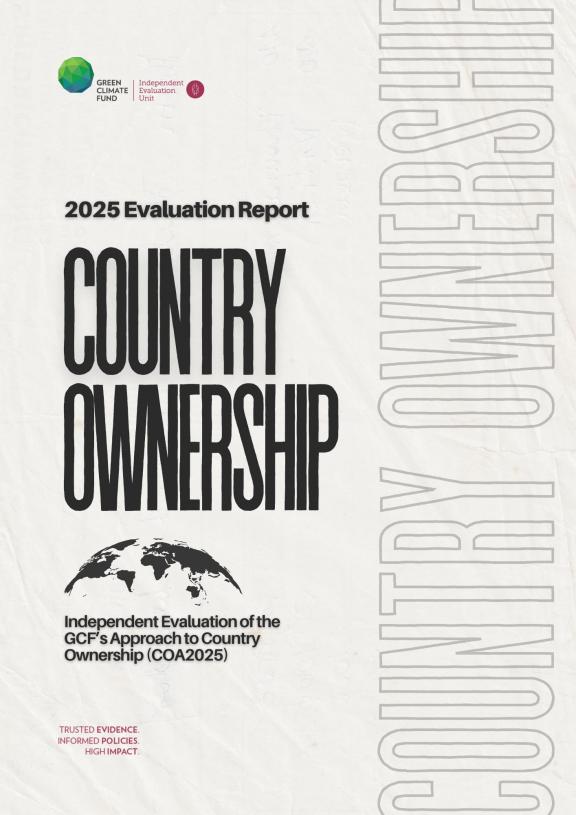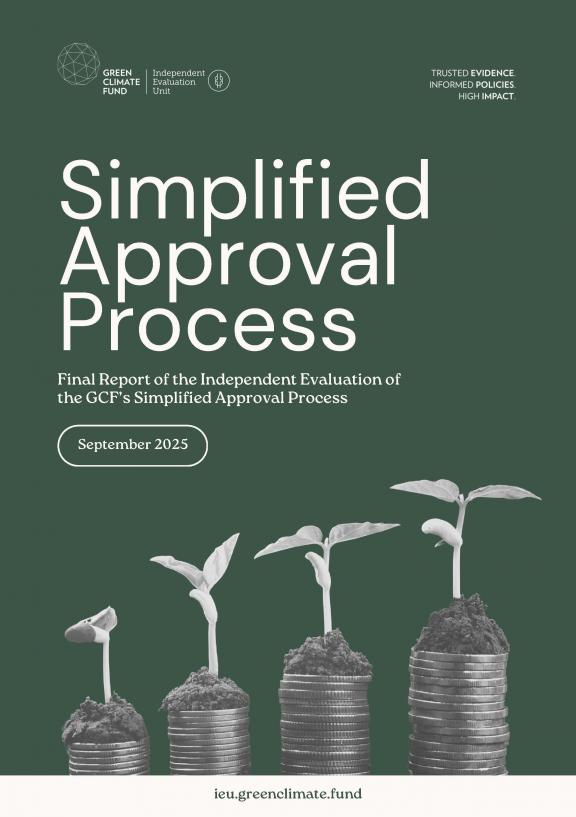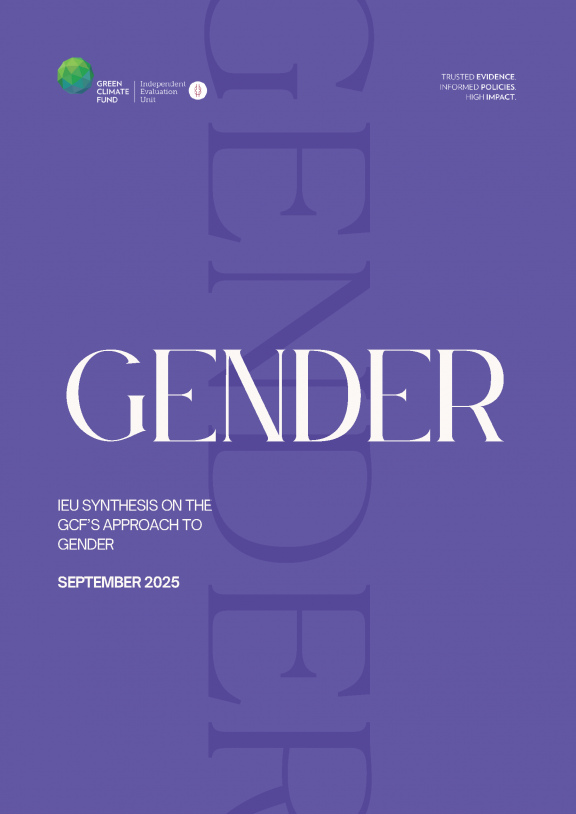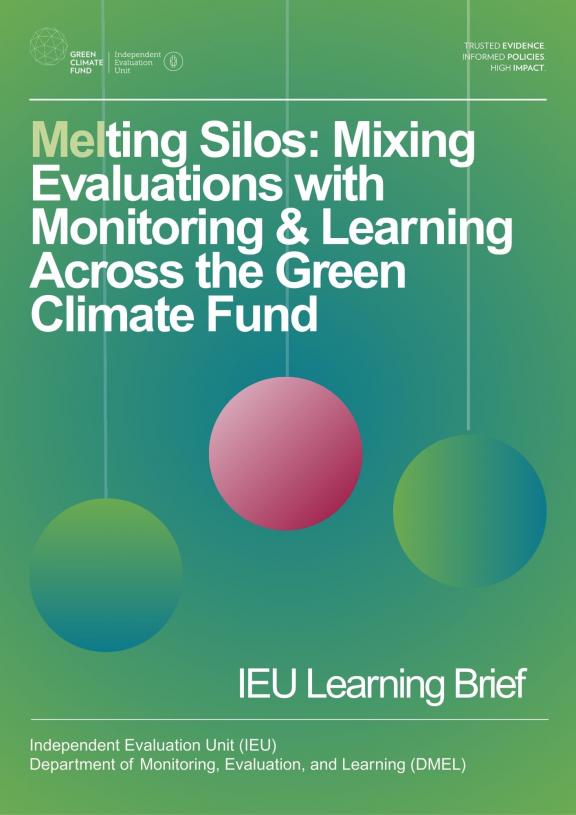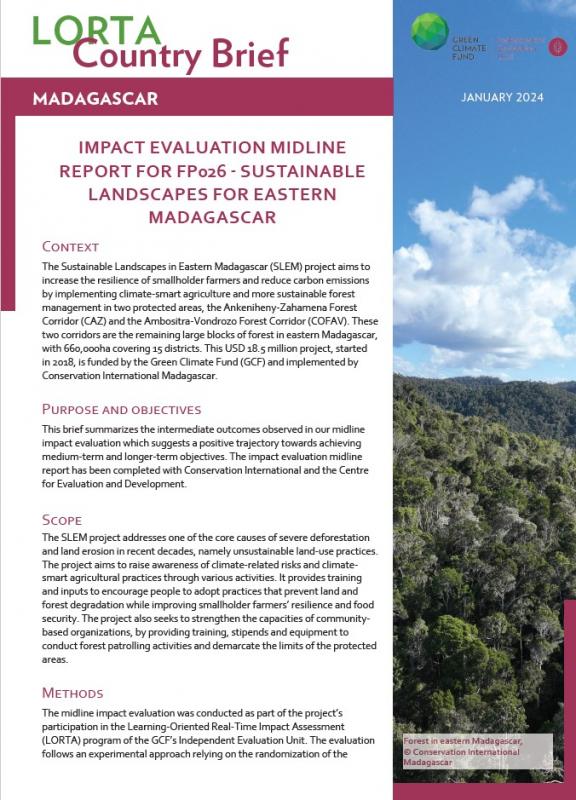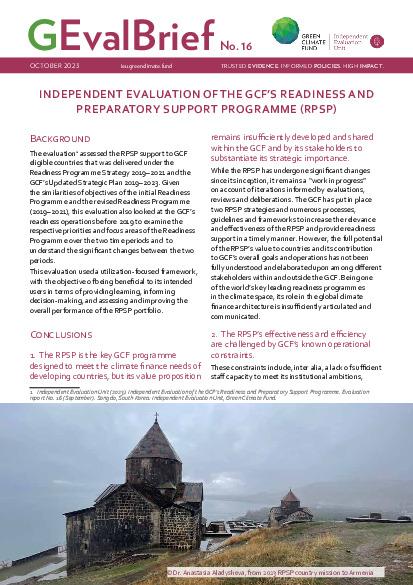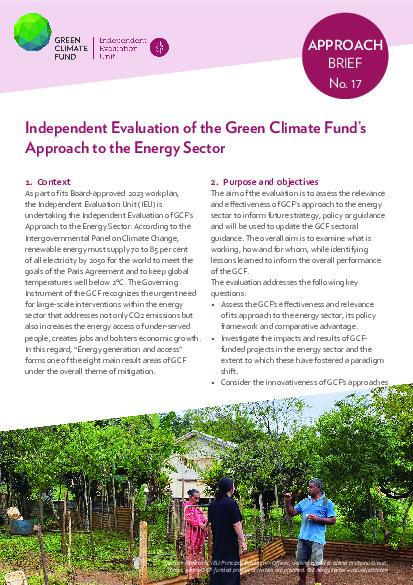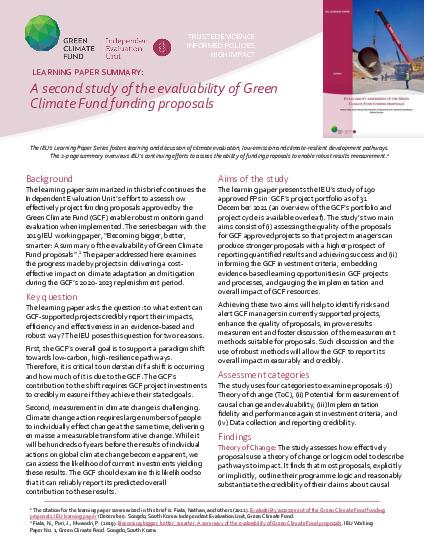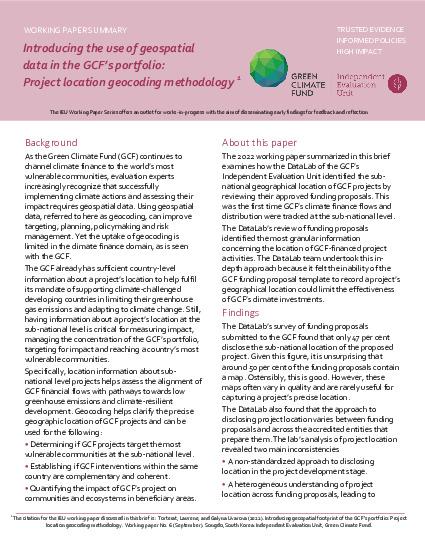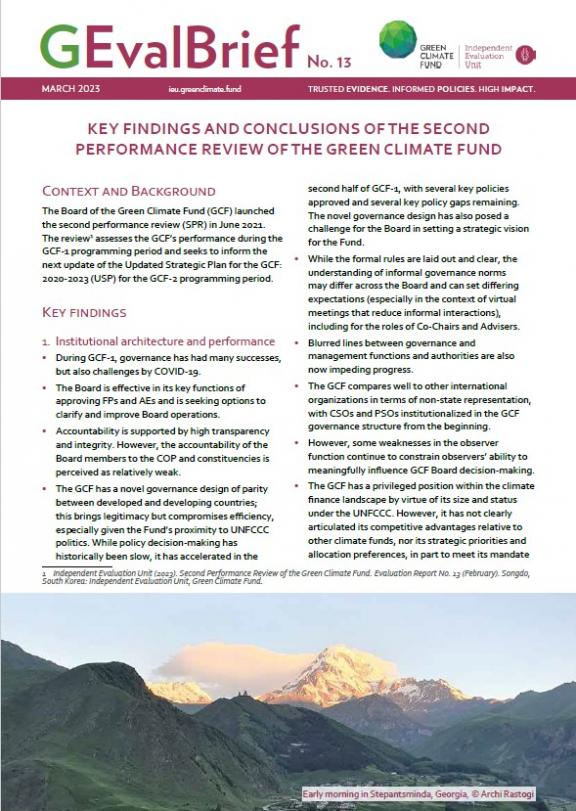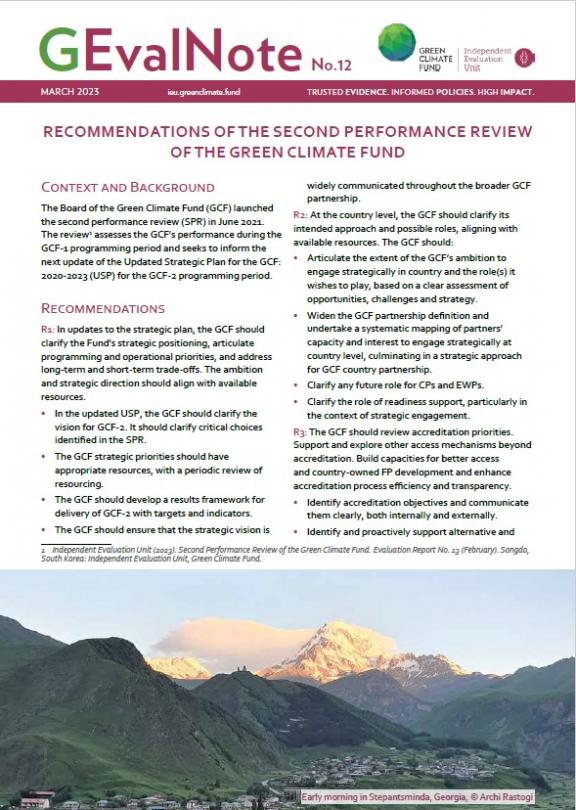IEU publications
IEU publications
To serve the needs of our stakeholders, the IEU issues a variety of publications related to our work, including in the context of evaluations and learning. Keep up with the IEU’s latest publications here.
Featured publications
Independent Evaluation of the GCF's Approach to Country Ownership (COA2025)
This independent evaluation of the Green Climate Fund’s (GCF) approach to country ownership was approved by the GCF Board as part of the 2025 workplan of the Independent Evaluation Unit (IEU) and is submitted in time for its forty-third meeting (B
Independent Evaluation of the GCF’s Simplified Approval Process (SAP2025)
The Green Climate Fund’s Simplified Approval Process (SAP) was created to make climate finance more accessible and responsive, thus enabling smaller, lower-risk projects to address urgent climate needs in vulnerable countries.
Independent Synthesis of the GCF’s Gender Approach
Approved at the fortieth meeting of the GCF Board (B.40), this formative Gender Synthesis consolidates insights from past evaluations, assessments, and studies to inform the forthcoming Independent Evaluation of the GCF’s Gender Approach.
MELting Silos: Mixing Evaluations with Monitoring & Learning Across the Green Climate Fund
This IEU Learning Brief, prepared jointly by the Independent Evaluation Unit (IEU) and the Department of Monitoring, Evaluation, and Learning (DMEL), examines how the Green Climate Fund (GCF) can better align its monitoring, evaluation, and learni
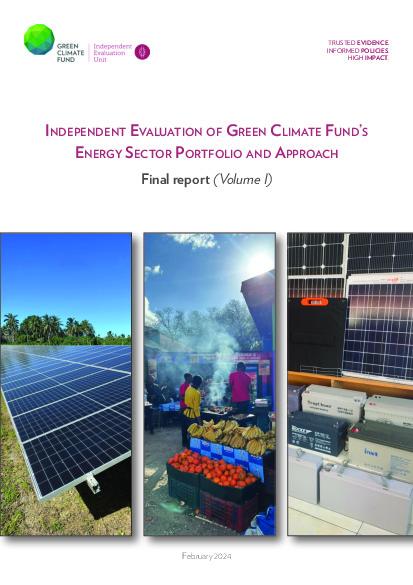
Final report of the Independent Evaluation of the Green Climate Fund's Energy Sector Portfolio and Approach
February 2024
The evaluation assesses whether and the extent to which GCF approaches and investments in the energy sector are effective in contributing to the objectives of the UNFCCC and other global agendas. It examines the GCF’s effectiveness and efficiency in reducing the effects of climate change, and promoting a paradigm shift towards low-emission and climate-resilient development pathways through its investments in the energy sector. It analyses the results achieved and paradigm shift emerging on the...
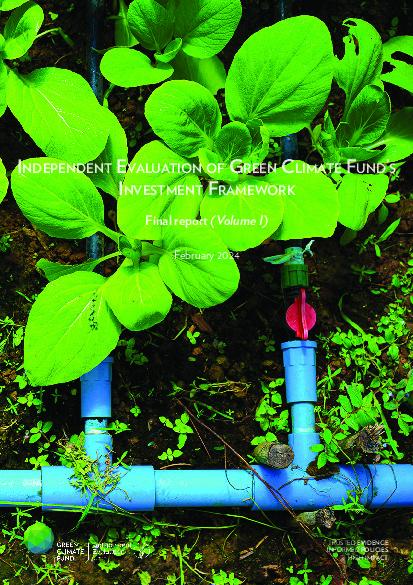
Final report of the Independent Evaluation of the Green Climate Fund’s Investment Framework
February 2024
As part of the work plan and budget of the Independent Evaluation Unit (IEU) for 2023, the GCF Board approved the Independent Evaluation of the GCF Investment Framework. The purpose of this evaluation is to assess the relevance and effectiveness of the GCF Investment Framework in fulfilling the GCF’s mandate and strategic goals. It was undertaken in 2023-2024, and the final report was launched in February 2024.
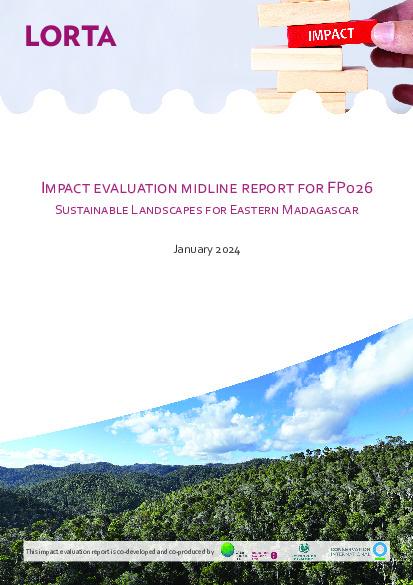
Impact Evaluation midline report for FP026 - Sustainable Landscapes for Eastern Madagascar
January 2024
The Sustainable Landscapes for Eastern Madagascar (SLEM) project (FP026) aims to increase the resilience of smallholder farmers and reduce carbon emissions by implementing climate-smart agriculture and sustainable forest management in two corridors covering 660,000 hectares over 15 districts. These corridors are the two remaining large blocks of forest in the eastern part of Madagascar. To develop resilient farming communities, SLEM directly supports vulnerable smallholder farmers to adopt...

Final report of the Independent Evaluation of the GCF's Readiness and Preparatory Support Programme
October 2023
The independent evaluation of the GCF's Readiness and Preparatory Support Programme undertaken in 2023 by the IEU assesses RPSP supports to GCF-eligible recipient countries delivered under the Readiness programme strategy 2019–2021 and the GCF Updated Strategic Plan 2020–2023. It examines progress since the IEU’s 2018 RPSP evaluation and looks at the Programme’s relevance, coherence and complementarity, effectiveness, as well as its results measurement and oversight mechanisms while feeding...
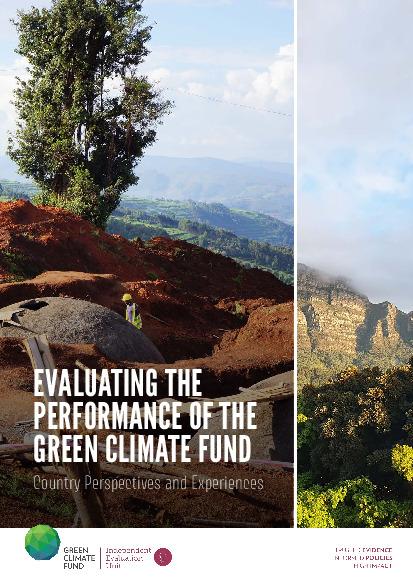
Evaluating the Performance of the Green Climate Fund: Country Perspectives and Experiences
October 2023
In 2023, the Green Climate Fund (GCF) Independent Evaluation Unit (IEU) studied GCF activities in 12 developing countries as part of the Second Performance Review (SPR) of the GCF, which focused on the first replenishment period covering 2020–2023. These case studies explore countries’ efforts to lower greenhouse gas emissions and promote climate-resilient development in partnership with the GCF. This report summarizes key insights from those case studies, using data collected from March to...
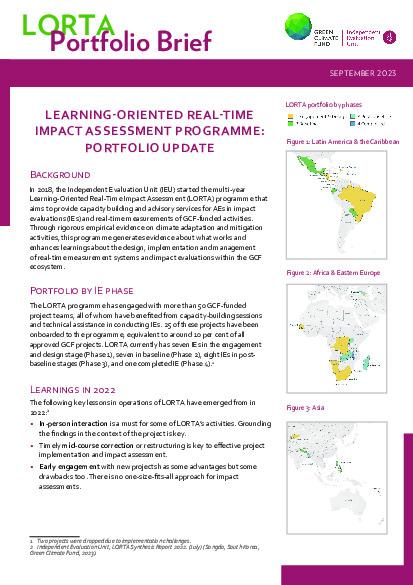
LORTA Portfolio Update
September 2023
The multi-year Learning-Oriented Real-Time Impact Assessment (LORTA) programme keeps track of the impact of GCF investments. Its goal is to assist GCF projects measure their impact in lowering greenhouse gas emissions and enhancing resilience to climate change, and if so, by how much. LORTA’s assistance includes, among other things, building and clarifying theories of change, co-building real-time and longer term measurement systems and helping projects use quantitative and qualitative...
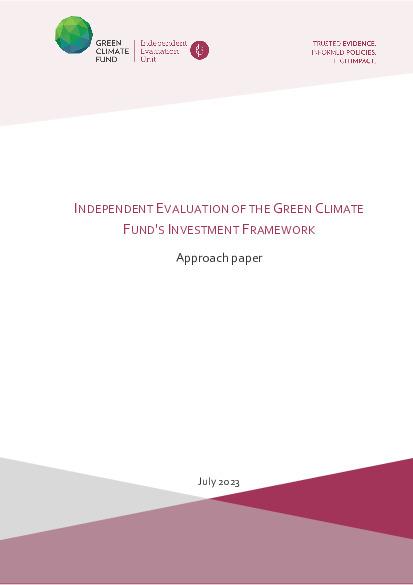
[Approach paper] Independent Evaluation of the Green Climate Fund's Investment Framework
July 2023
During the thirty-fourth meeting of the GCF Board, the 2023 IEU workplan was approved, which includes an Independent Evaluation of the GCF’s Investment Framework. The evaluation broadly assesses the relevance and effectiveness of the GCF’s investment framework in fulfilling the GCF’s mandate and strategic goals. It considers all relevant policies, tools, frameworks, and processes that come into play to enable the GCF to identify high-quality climate change projects and make investment decisions...
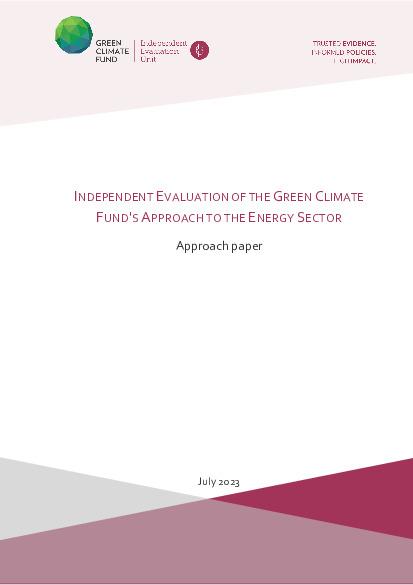
[Approach paper] Independent Evaluation of Green Climate Fund's Approach to the Energy Sector
July 2023
An independent evaluation of the GCF's approach to the energy sector is undertaken following an approval by the GCF Board in the decision B.34/06 in October 2022. The evaluation will assess the relevance and effectiveness of GCF’s approach to the energy sector to inform future strategy, policy or guidance and will be used to update the GCF sectoral guidance. It will also provide an extensive analysis of the results achieved as well as scenarios for future strategies of the GCF. Finally, it will...
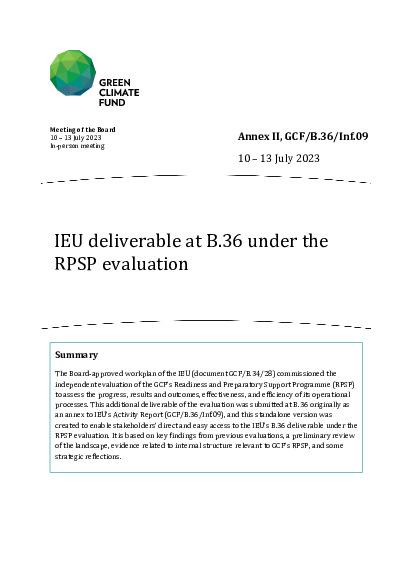
IEU deliverable at B.36 under the RPSP evaluation
July 2023
The Board-approved workplan of the IEU (document GCF/B.34/28) commissioned the independent evaluation of the GCF’s Readiness and Preparatory Support Programme (RPSP) to assess the progress, results and outcomes, effectiveness, and efficiency of its operational processes. This additional deliverable of the evaluation was submitted at B.36 originally as an annex to IEU’s Activity Report (GCF/B.36/Inf.09), and this standalone version was created to enable stakeholders’ direct and easy access to...
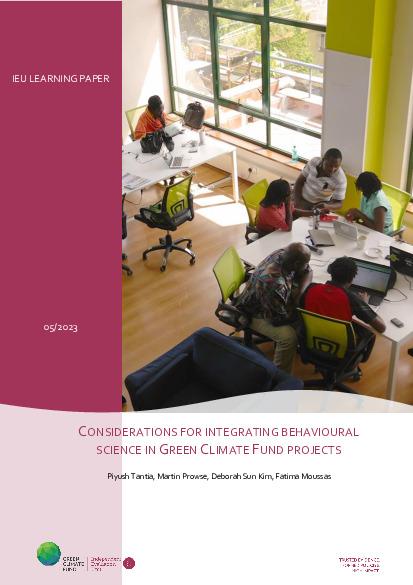
Considerations for integrating behavioural science in Green Climate Fund projects
June 2023
To encourage GCF staff and project developers to identify potential behavioural opportunities, the IEU presents a short list of considerations to highlight which elements of GCF projects may benefit from the application of behavioural science. These are all elements where groups of people must adopt a new behaviour, make a complex decision or execute a complex task. The list of considerations can be utilized during the review and appraisal of project proposals. If deemed relevant, project...
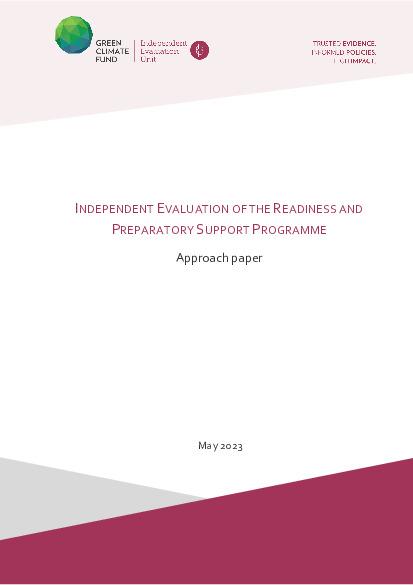
[Approach paper] Independent evaluation of the Readiness and Preparatory Support Programme
June 2023
As part of its Board-approved 2023 workplan, the Independent Evaluation Unit (IEU) is undertaking the Independent Evaluation of GCF’s Readiness and Preparatory Support Programme. The aim of the evaluation is to assess the Readiness programme against key evaluation criteria such as effectiveness and efficiency, relevance, impact, sustainability, complementarity and coherence and other criteria. The evaluation addresses key questions as follows: Assess progress and gains made in the...
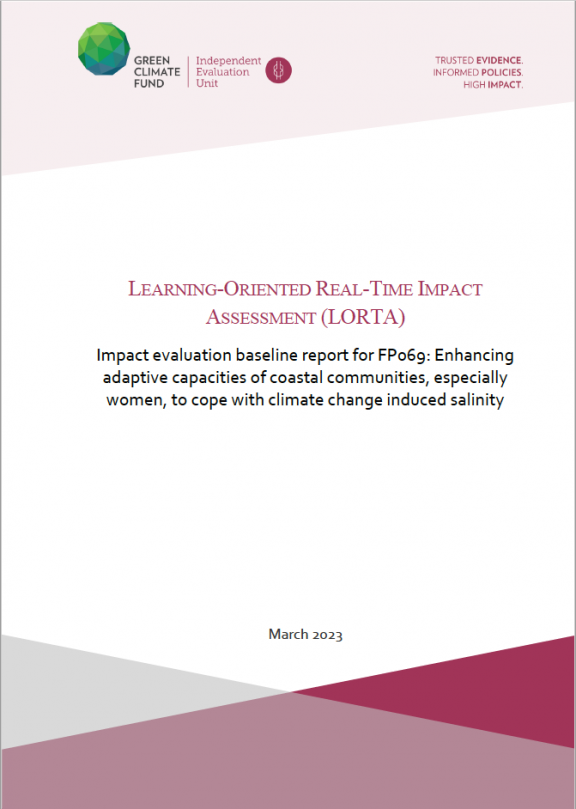
Impact evaluation baseline report for FP069: Enhancing adaptive capacities of coastal communities, especially women, to cope with climate change induced salinity
March 2023
This report presents the baseline data for “Enhancing adaptive capacities of coastal communities, especially women, to cope with climate change induced salinity”, a project funded by the Green Climate Fund and implemented by the United Nations Development Programme in Bangladesh. This baseline report provides insights and summary statistics about the socioeconomic situation of project households before project implementation.
